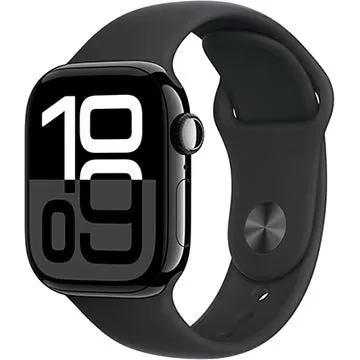Choosing the right gaming phone requires considering key features that set it apart from a regular smartphone. High-performance processing is crucial, along with sustained performance to avoid slowdowns and overheating. Ample memory and storage are essential for multitasking and game capacity. Some gaming phones, such as the RedMagic 10 Pro, offer additional gaming enhancements like shoulder buttons and improved touch sampling rates.
The display is paramount. A larger, brighter screen with a high refresh rate ensures smooth visuals. A larger phone also minimizes thumb obstruction during touch controls. Considering these factors, here's a curated selection of top gaming phones:
TL;DR – Top Gaming Phones:
 Best Overall: RedMagic 10 Pro
Best Overall: RedMagic 10 Pro
 Best iPhone Alternative: Samsung Galaxy S24 Ultra
Best iPhone Alternative: Samsung Galaxy S24 Ultra
 Best iPhone: iPhone 16 Pro Max
Best iPhone: iPhone 16 Pro Max
 Best Budget iPhone: iPhone SE (2022)
Best Budget iPhone: iPhone SE (2022)
 Best Everyday Phone: OnePlus 12
Best Everyday Phone: OnePlus 12
 Best Foldable: Samsung Galaxy Z Fold 6
Best Foldable: Samsung Galaxy Z Fold 6
 Best Budget Android: OnePlus 12R
Best Budget Android: OnePlus 12R
(See our guide to the best phone controllers for accessory options.)
(Contributions by Georgie Peru and Danielle Abraham)
RedMagic 10 Pro – Detailed Review:

The RedMagic 10 Pro excels with exceptional performance and sustained high frame rates. Its actively cooled Snapdragon 8 Elite chip ensures efficient performance during extended gaming sessions. The massive 7,050mAh battery provides ample power. Gamers will appreciate the shoulder buttons and fast touch-sampling rate. The 6.85-inch AMOLED display boasts a 144Hz refresh rate and high brightness. Its competitive price point makes it a standout choice.
Samsung Galaxy S24 Ultra – Detailed Review:

The Samsung Galaxy S24 Ultra offers incredible performance, a stunning 6.8-inch AMOLED display (1440p, 120Hz), and a powerful Snapdragon 8 Gen 3 processor. Its Game Booster mode optimizes performance. While not as fast as the RedMagic 10 Pro, its robust features, long-term support, and superior camera system make it a strong contender.
iPhone 16 Pro Max – Detailed Review:

Powered by the A18 Pro chip, the iPhone 16 Pro Max delivers powerful gaming performance. Its large 6.9-inch display enhances the gaming experience. The excellent design, powerful camera system, and access to a growing library of iOS games make it a compelling option.
iPhone SE (2022) – Detailed Review:

The iPhone SE (2022) provides a surprisingly strong gaming experience at a budget-friendly price, thanks to its A15 Bionic chip. While the smaller 4.7-inch display is a drawback, it can be mitigated with a phone controller. Cloud gaming is a viable option to overcome storage limitations.
OnePlus 12 – Detailed Review:

The OnePlus 12 offers a balance of powerful performance and everyday usability. Its Snapdragon 8 Gen 3 processor, large AMOLED display (120Hz), and refined design make it a versatile gaming phone. It handles demanding games well, though it may overheat under extreme load.
Samsung Galaxy Z Fold 6 – Detailed Review:

The Samsung Galaxy Z Fold 6 boasts impressive speed and stunning displays (7.6-inch main, 6.2-inch cover). The Snapdragon 8 Gen 3 chip significantly enhances performance. The unique foldable design offers flexible gaming options, though the aspect ratio may be unconventional for some.
OnePlus 12R – Detailed Review:

The OnePlus 12R provides a great value proposition, offering a large, vibrant 6.78-inch AMOLED display (120Hz) and the Snapdragon 8 Gen 2 processor. Its 5,500mAh battery ensures extended playtime. While the camera system is less advanced than the OnePlus 12, it remains a strong budget-friendly gaming option.
What to Look for in a Gaming Phone:
Processor choice is critical. The latest Snapdragon 8 Gen 3 (Android) or A18 Pro (iPhone) chips offer peak performance. However, previous generations still provide excellent gaming capabilities, especially on budget-friendly options.
Displays should exceed standard smartphone specs. Look for high refresh rates (90Hz or higher), variable refresh rates for power saving, and faster touch sampling rates. Consider additional features like shoulder buttons.
Gaming Handhelds vs. Gaming Phones:
Gaming phones are ultra-portable and multifunctional, offering smartphone features beyond gaming. Gaming handhelds (Steam Deck, Nintendo Switch, ROG Ally) are bulkier but dedicated to gaming, offering better controls. The choice depends on your preferences for portability, functionality, and game library access. Battery life and cost are also significant factors.
 Home
Home  Navigation
Navigation






 Latest Articles
Latest Articles










 Latest Games
Latest Games












